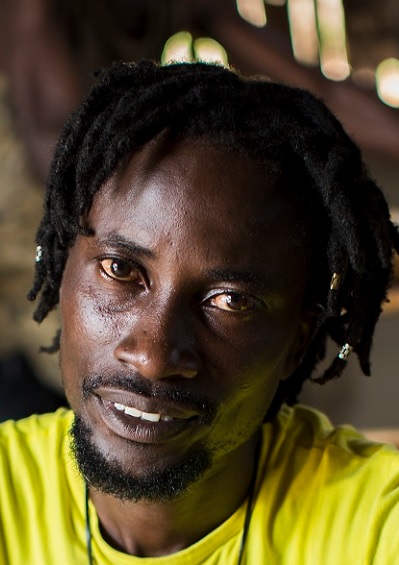Libya Bombing Revisited: Two Men and World History
A reflection on Guido Westerwelle, Germany’s former Foreign Minister, who just passed away.
March 19, 2016
This is the story of two men – one from France (Bernard-Henri Levy, the always dashing, open-shirted “philosopher”), the other from Germany (the late Guido Westerwelle, then Germany’s Foreign Minister). The latter just died, after a prolonged bout with acute leukemia.
Each man was a key player in the drama that played out in Western politics a few years ago when the rallying cry was to go and hunt down Ghaddafi.
Ultimately, this is also a cautionary story about the presumed power of a hyper-intellect (Levy) versus the instincts of a more down-to-earth man who was at times considered more of a bumbler (Westerwelle).
Bernard-Henri Levy – or “BHL” as he likes to be known by his initials — craves admiration and global attention.
A forceful advocate for human rights (with an emphasis on force in the literal sense), Levy convinced Nicolas Sarkozy, the French President at the time, to go “all in” by “taking care” of Muammar Ghaddafi, the Libyan dictator.
The drama played out in 2011. Amidst a frenzied and ultimately feverish debate, the West ultimately resolved that Libya should be invaded and that Gaddafi should be taken down – that meant, out.
It wasn’t just Nicolas Sarkozy who was eager to prove his mettle. Britain’s David Cameron, too, was looking for his Churchillian moment in terms of war making.
Chasing down Ghaddafi: Made for TV
There was a widespread sense favoring decisive “action.” TV journalists contributed to the dramatic sense that the world was changing fast and it was a moment in history not to be missed. The chase was on.
The action was widely seen – and intended — as an opportunity to deal a knockout blow to a regime.
The principal opponent of Paris’s beautiful man (BHL) was German Foreign Minister Guido Westerwelle. He advocated for a “culture of military restraint.”
This was in line with the previous German government’s opposition to the invasion of Iraq. That offensive turned into an unmitigated disaster, no matter how much Washington’s neo-con PR machinery tries to talk up the effort.
Westerwelle ended up abstaining at the UN on the NATO decision to strike Libya. This put him, and all of Germany, into the curious position for opposing basically all Western partners that were ready to “rumble.”
A surprising decision
Westerwelle’s lonely decision to keep Germany out of the bombing coalition was unexpected. Intervening in Libya on behalf of the rebellion seemed like an open and shut case.
Germany deciding to stay on the sidelines seemed to many at the time like an act of unfortunate cowardice.
At best, it could be understood as a reflection of Germany’s own 20th century history when it had roamed those same lands in Northern Africa during World War II.
BHL, for his part, has a personal connection to the region. Levy is French Algerian (he was born there in 1948). That could have — but definitely did not – induce caution and circumspection on his part.
Westerwelle’s decision not to join forces with the rest of the West at the time was considered more of an irritant and a nuisance than a serious betrayal. Germany’s firepower from the air was not needed in order to make the operation a success.
What few people realized then, amidst all the euphoria, was that the rush to take out Ghaddafi ended up, even more so than Iraq before, being mindless hype.
Post-invasion, Libya turned into a pile of rubble and anarchy. As in Iraq’s case, the destruction of Libya has had metastasizing ripple effects across the region, especially Tunisia, but also deeper into West Africa.
Principled opposition
Westerwelle’s principled opposition to the Libya invasion and the curious penchant to militarize political conflicts is to his everlasting credit.
His decision to abstain at the UN in March 2011 basically introduced a point of order – that the optimism and excitement about the impending action was completely misplaced.
There are those who quibble in hindsight with his decision to abstain – rather than merely vote no – if he was so opposed.
But such diplomatic fine points notwithstanding, Westerwelle did what a Foreign Minister should be doing – ask serious questions about rushing into presumably “slam-dunk” invasions.
Meanwhile, BHL – the great French intellectual – kept beating the war drums. It was as if Levy was the blood-seeking high priest in a highly ritualized, naïve and crass display of Western power.
If one looks now at how that country has devolved into a completely stateless territory, one can certainly agree with Westerwelle – that the mere urge to bomb ultimately leads nowhere, if it doesn’t create a net negative.
One could only wish that wiser heads had prevailed.
Takeaways
France’s Bernard-Henri Levy is a charming intellectual, which proved dangerous for the world.
The rush to take out Libya’s Ghaddafi, even more so than Iraq before, was mindless hype.
Westerwelle’s UN principled abstention on the Libya war was a blow against foolish interventions.
Westerwelle did what Foreign Ministers should: ask serious questions about rushing into invasions.
Read previous

Global Economy
Ghana’s Bamboo Bicycles
March 19, 2016
